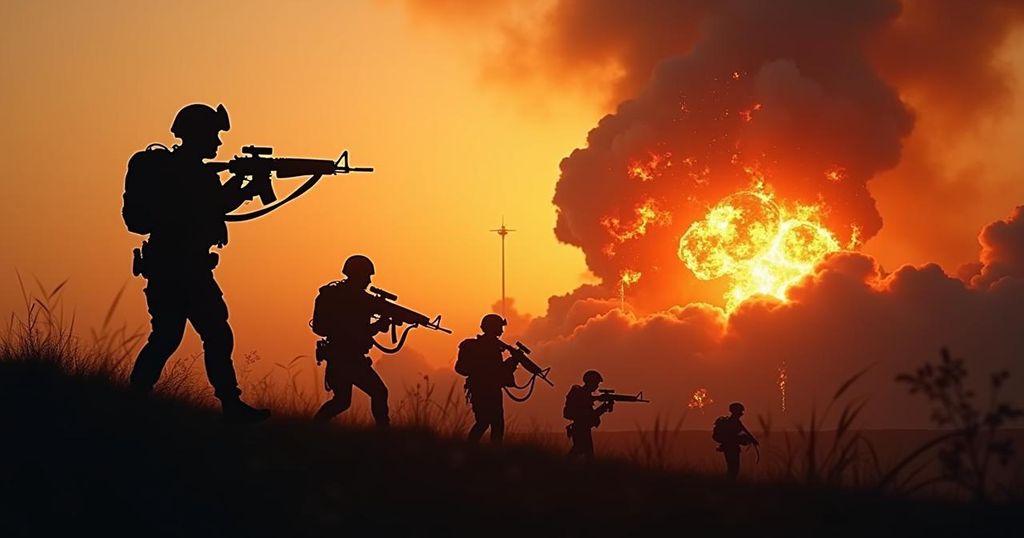The Israeli military has intensified operations against Hezbollah in Lebanon, confirming strikes on numerous targets following the killing of leader Hassan Nasrallah. Iran’s response includes vows of retribution and public mourning. U.S. President Biden described the killing as justifiable retribution, while calls for a ceasefire are renewed amid rising casualties.
The Israeli Defense Forces (IDF) launched extensive strikes against Hezbollah targets in Lebanon early Sunday, impacting numerous installations including those used for missile launches directed at Israel. This military action followed the confirmation of the death of Hezbollah’s longtime leader, Hassan Nasrallah, which has intensified regional tensions significantly. In response to Nasrallah’s death, Iran’s spiritual leader, Ayatollah Ali Khamenei, declared that this act “will not go unpunished” and announced a period of five days of mourning. U.S. President Joe Biden characterized the assassination of Nasrallah as justified retribution for what he described as a “40-year reign of terror” and called for an immediate ceasefire between Israel and Hezbollah. The Israeli military reported that its airstrikes on Friday resulted in the elimination of Nasrallah, alongside notable Hezbollah military personnel, including Ali Karki, the commander responsible for the southern front. The strikes have reportedly led to over thirty casualties and numerous injuries, as Lebanon’s health ministry indicated. Israeli Prime Minister Binyamin Netanyahu stated that Nasrallah’s death would shift the regional power dynamics for years to come.
The recent events are situated within a broader context of escalating violence and hostilities in the Middle East, particularly between Israel and Iranian-supported militant factions such as Hezbollah. The assassination of high-profile leaders often triggers cycles of retaliation and conflict, which complicate peace efforts and increase tensions throughout the region. This incident comes against the backdrop of longstanding grievances and ongoing military engagements, drawing international attention and concern.
In summary, the assassination of Hassan Nasrallah has led to significant military reprisals by Israel against Hezbollah, with Iran pledging vengeance. The situation remains volatile, emphasizing the precarious balance of power in the region and the need for diplomatic interventions to prevent further escalations. Leaders in both the U.S. and the region are advocating for a ceasefire as the casualties mount and the risk of wider conflict looms larger.
Original Source: www.france24.com







